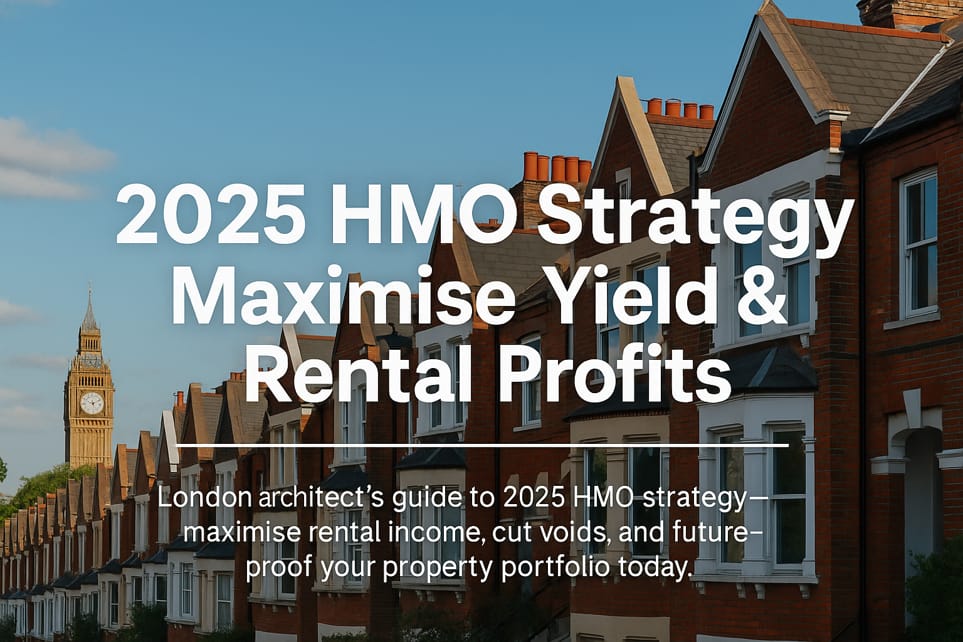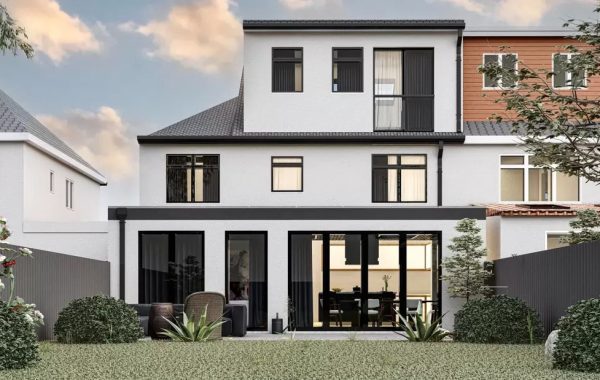The HMO (House in Multiple Occupation) market continues to thrive as urban rental demand grows. Investors in 2025 face both opportunities and challenges. With careful planning, effective management, and smart investment choices, landlords can increase rental income while maintaining high occupancy rates.
This blog outlines strategies to boost yield and rental profits in the current property climate.
Key Takeaways
- Focus on areas with high tenant demand to secure consistent rental income.
- Optimise property layouts to increase the number of rentable rooms legally.
- Comply with HMO licensing and safety regulations to protect tenants and income.
- Set competitive rents while offering value-added features to retain tenants.
- Control operational costs through energy efficiency, maintenance, and management systems.
- Invest in upgrades to attract quality tenants and maintain high occupancy.
- Apply careful financing strategies to maximise ROI without over-leveraging.
- Monitor market trends and adjust your strategy to maintain a competitive edge.
Understand Local Market Demand
Successful HMO investment begins with identifying areas with strong rental demand. Cities with expanding job markets, universities, and transport links attract tenants seeking flexible rental options. Analyze local rental rates, tenant demographics, and vacancy levels. Target areas where demand exceeds supply, as these locations allow landlords to charge competitive rents without long void periods.
When choosing a property, consider its proximity to essential amenities such as supermarkets, public transport, and entertainment hubs. Properties near universities or business districts often generate higher occupancy. High-quality HMOs in prime locations maintain consistent rental income even during economic fluctuations.
Optimise Property Layout
Maximising rental profits requires efficient use of space. Studio 20 Architects helps investors convert properties effectively to increase rentable rooms without breaching local HMO licensing regulations. Open-plan layouts or converting unused spaces into bedrooms can significantly increase rental yield.
Each room should meet legal standards for size, ventilation, and fire safety. Tenants value comfort and functionality. Well-designed HMOs attract long-term renters, reduce turnover, and improve profitability. Investing in smart furniture, storage solutions, and modern fixtures also enhances tenant satisfaction and justifies higher rents.
Focus on Compliance and Licensing
HMO licensing rules continue to tighten. Local councils enforce strict safety, hygiene, and space requirements. Failing to comply can result in fines, property closure, or void periods. Always check the specific HMO licensing criteria in your area before purchasing or converting a property.
Ensure your property meets fire safety standards, including smoke alarms, fire doors, and clear escape routes. Regular safety inspections and maintenance protect tenants while safeguarding your income. Compliance builds trust with tenants and avoids costly disruptions.
Set Competitive Rent
Rent pricing influences occupancy and profitability. Compare your property with similar HMOs in the area. Charging too little reduces income, while charging too much risks high vacancy. Adjust rent periodically to reflect market trends, inflation, and property improvements.
Offering flexible payment options and incentives for long-term tenants can boost retention. For example, small improvements like upgraded kitchens, fast Wi-Fi, or included utilities make your property more appealing. Happy tenants are less likely to leave, reducing turnover costs and boosting net rental profit.
Minimise Operational Costs
Controlling expenses is key to maximising net yield. Implement energy-efficient systems to reduce utility bills. Regular maintenance prevents costly repairs. Consider centralised contracts for services such as cleaning, gardening, and pest control to reduce overall costs.
Digitising management tasks with software or apps can save time and reduce human error. Automating rent collection, maintenance requests, and communication improves efficiency while keeping tenants satisfied. Cost-effective management allows more profit to flow directly from rental income.
Maximise Occupancy
High occupancy is the foundation of HMO profitability. Market your property effectively to fill rooms quickly. Use professional photos and engaging descriptions on popular rental platforms. Highlight features that appeal to your target audience, such as proximity to public transport, modern amenities, or a friendly community environment.
Screen tenants carefully. Conduct background checks and verify references to reduce risks of rent arrears or property damage. Establish clear tenancy agreements that outline responsibilities, house rules, and payment schedules. Reliable tenants keep properties occupied and protect income.
Invest in Property Upgrades
Regular upgrades maintain property value and increase rental appeal. Kitchens, bathrooms, and communal areas are key features tenants notice first. Energy-efficient appliances and sustainable features can attract environmentally conscious renters and justify higher rent.
Even small improvements, like repainting walls, replacing worn carpets, or updating lighting, can make a property more attractive. Well-maintained properties command higher rents and attract tenants quickly, reducing void periods and enhancing yield.
Implement Smart Tenant Management
Good tenant management drives long-term profitability. Maintain open communication channels and respond promptly to maintenance requests. Conduct regular inspections to ensure compliance with safety standards. Encourage tenants to report problems early to prevent costly repairs later.
Create a positive living environment. Simple gestures like seasonal maintenance, communal events, or clear house rules build goodwill. Tenants who feel valued are more likely to stay longer, reducing turnover costs and increasing overall yield.
Leverage Financing Strategies
Smart financing can enhance ROI. Consider mortgage options tailored to HMOs, which often allow higher borrowing limits than standard buy-to-let mortgages. Factor in interest rates, fees, and repayment terms to ensure cash flow remains positive.
Refinancing older properties at lower interest rates or using equity to purchase additional HMOs can accelerate portfolio growth. Carefully monitor debt-to-income ratios to avoid over-leverage, ensuring your investment remains profitable even during market shifts.
Monitor Market Trends
The rental market in 2025 is evolving. Keep track of government policy changes, rent caps, and housing legislation that could affect HMOs. Stay alert to local supply and demand shifts that may impact occupancy and rental income.
Investors who adjust their strategy in response to market trends maintain an edge. Whether it means updating property features, adjusting rent, or exploring new locations, proactive management secures steady returns and reduces risk.
Frequently Asked Questions
1. What is the ideal number of tenants for an HMO in 2025?
The optimal number depends on the property size and local regulations. Generally, a three- to six-bedroom property strikes a balance between high rental yield and manageable operations.
2. How can I reduce void periods in my HMO?
Maintain the property, price rent competitively, and screen tenants carefully. Marketing proactively on popular rental platforms also ensures quick occupancy.
3. Are there tax benefits for HMO landlords?
Yes, landlords can claim allowable expenses such as mortgage interest, maintenance costs, property management fees, and insurance, reducing taxable income.
4. How often should I update my HMO property?
Major updates like kitchens or bathrooms every 7–10 years keep the property competitive. Minor maintenance, such as painting or fixture replacement, should happen annually or as needed.
5. Can I manage multiple HMOs efficiently?
Yes, using property management software, hiring reliable staff, or outsourcing tasks like maintenance and cleaning can make managing multiple HMOs practical while maintaining high occupancy and tenant satisfaction.





